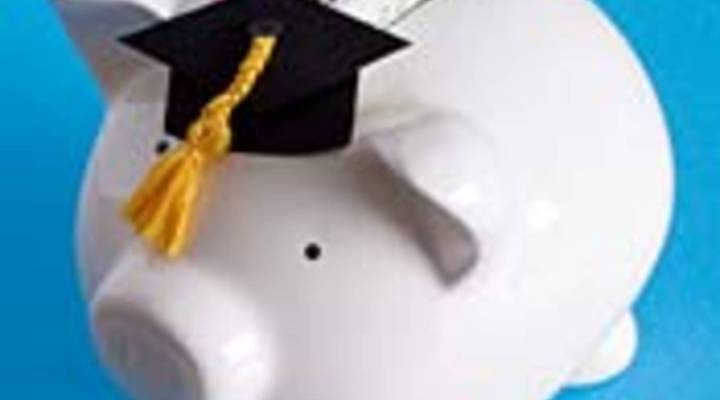
What’s a recent college grad to do?

TEXT OF INTERVIEW
Tess Vigeland: Dude! Time to get a financial life.
And lucky for you, Beth Kobliner wrote a book of the same name about 10 years ago.
She says back then colleges weren’t too interested in having her speak to students.
But this year, with unemployment closing on 15 percent for 20 to 24 year-olds, she’s been B.A.O.C. — Big Author On Campus. She took a break from all that speechifying to come and talk with us about the questions she’s getting. Welcome to the show.
Beth Kobliner: Great to be here Tess.
Vigeland: What’s the general attitude you’re finding among the class of 2009?
Kobliner: Meeting these kids, these graduates, they are so overwhelmed and they are a bit freaked out by what’s going on right now.
Vigeland: Yeah, who isn’t, right?
Kobliner: Who isn’t. But these kids, I think, they were kind of in this bubble. You know, they entered and the economy was pretty good and their parents were happy and they had fat 401(k)s and maybe good homes. Now they’re graduating, their parents are in a financial mess and they, on average, have $22,000 in student loans and, on average, $4,100 in credit card debt.
Vigeland: How did they think that it was a good idea to rack up so much debt?
Kobliner: I think the problem is they have been so brought up with this notion that it’s fine to have credit card debt, that they don’t really think twice about it. And any information that they get at all is usually from credit card companies, so it’s sort of like what smoking must’ve been like in the 40s, before they had all these reports showing how bad it was for you.
Vigeland: Home Ec has gone the way of the dodo bird, which is where I learned how to balance a checkbook. There really isn’t any personal finance in high school and not in college really. So what do they know, if anything?
Kobliner: One of the first questions that I’m asked at many of these schools, “OK, so I have these student loans, I don’t have a job, how do I get a loan to rent an apartment?”
Vigeland: Ugh.
Kobliner: “How do I get a loan to buy furniture?” And I have to start by saying, you don’t get a loan to do those things. You know, I spoke at Harvard, I spoke at Yale, you know, these kids are smart kids and they’ll say, “Well I have my savings account and I have a checking account and then my credit account. And I withdraw money from my credit account.” It’s like, “No, it’s not a credit account, it’s a loan.”
And a lot of students at every school said to me, “Is it true that it’s good to carry a balance month-to-month, to not pay off your credit card and that helps your credit score?” Absolutely not true, that’s not the case. You don’t want to carry a balance from month-to-month, there’s so much that they need to learn to avoid getting into these huge messes that are very hard to get out of as you graduate from college and don’t have a job.
Vigeland: The jobs are not there. So what do you find that they are doing saying about that situation?
Kobliner: I would generally speak to, say maybe, 60 students or maybe a little bit more? And by show of hands, how many people have a job, and usually two or three put up a hand. So it’s pretty dramatic and a lot of kids told me they had offers that were then rescinded and they’re told, “We kind of want to hire you, but could you wait for us for six months?” It’s just like something I’ve never seen and certainly they’ve never seen that.
Vigeland: Now of course, we should acknowledge that this is not the first recession, this is not the first time that newly minted grads have not been able to find a job right away. What might be some advice that remains timeless for people getting out of college?
Kobliner: Well the first one, which makes them all just slump in their seats, is, see if you can move back home. And they just look at me like “Are you kidding, lady? I mean, what are you saying?” Get some sort of income going, flipping hamburgers or whatever it is, and then do something else for volunteer work, something that you enjoy, trying to get an internship or something intellectually interesting, but also good for your resume when the economy does turn around, which it will. We don’t know exactly when, but it will turn around.
Vigeland: Beth Kobliner is the author of “Get a Financial Life,” this Bible for college graduates. Thanks so much for coming in.
Kobliner: It’s been my pleasure.
There’s a lot happening in the world. Through it all, Marketplace is here for you.
You rely on Marketplace to break down the world’s events and tell you how it affects you in a fact-based, approachable way. We rely on your financial support to keep making that possible.
Your donation today powers the independent journalism that you rely on. For just $5/month, you can help sustain Marketplace so we can keep reporting on the things that matter to you.











